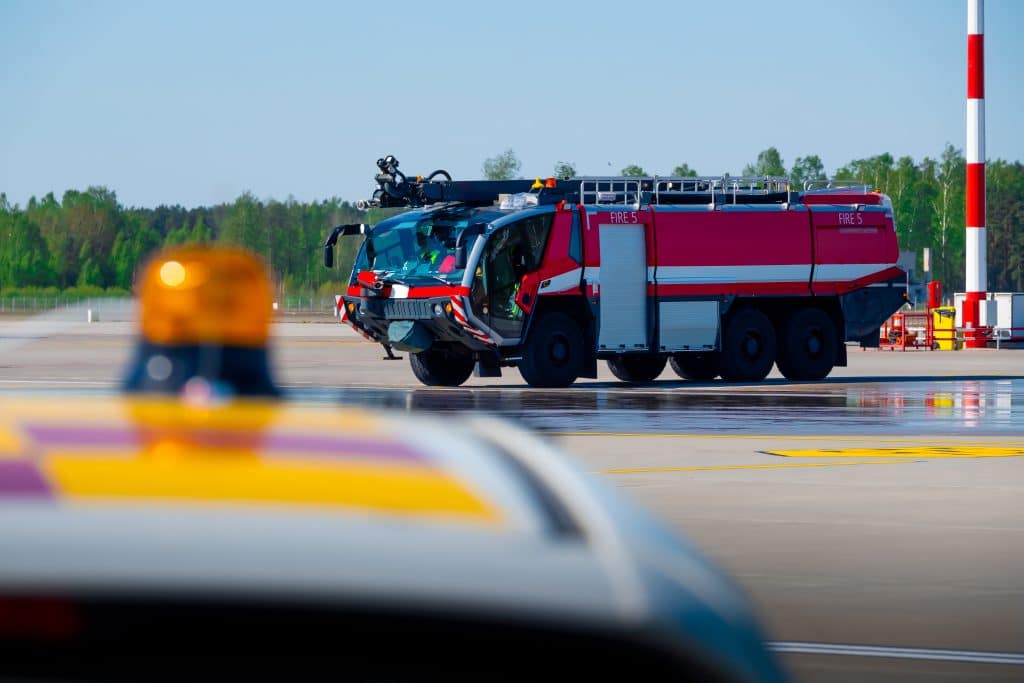In aviation, even the best plans can take a turn for the worst. Be it a weather event, a mechanical issue, an IT outage, or something more serious, incidents can – and do – occur. The real test of an aviation operation isn’t just how well it runs on a good day—it’s how efficiently it can respond when things go wrong.
So, here’s the big question: If an incident were to occur, does your OCC know how to respond?
Effective incident management begins with the ability to categorise incidents accurately and assess their severity. Does your Operations Control Centre (OCC) have a clear and established process for this? Whether it’s a minor disruption or a major emergency, properly identifying the level of severity ensures that the right response is triggered at the right time. Having a clear framework for categorisation avoids confusion, reduces delays in response, and ensures resources are allocated appropriately.

Who’s Running the Show?
When an incident unfolds, it’s vital to know who’s in charge. Do you have a designated Incident Command Centre within your OCC, and is it clear who leads the response effort? A well-defined chain of command is essential, especially when the situation is fluid and decisions need to be made quickly. If your team isn’t sure who’s calling the shots, things can go downhill fast. For guidance on this, refer back to our article on Operational Control.
Clear and secure communication during an incident is non-negotiable. How does your OCC handle the flow of information in the heat of the moment? Are lines of communication closely monitored, guarded, and protected? During an incident, information needs to flow both internally—between departments—and externally, including to regulatory bodies and partners. But it also needs to be tightly controlled. Loose, uncoordinated communication can worsen a crisis and lead to misinformation, making an already tough situation harder to manage.

One critical piece that’s often overlooked is your OCC’s policy regarding media interactions. Do you put your hand up and say ‘Sorry no photos!’ Or does your OCC have a strict policy about engaging with the media? In today’s 24-hour news cycle, a single misstep can spread misinformation, or damage your company’s reputation. It’s essential that only authorised personnel interact with the media and that they’re trained to handle the delicate balance of releasing accurate information without feeding into speculation or panic.
Securing Your Systems
When a serious incident occurs, you might need to limit who can access certain parts of your system to prevent unauthorised changes or leaks of sensitive information. Does your OCC’s software stack include a lockdown capability? Can you restrict access to certain systems or data, ensuring that only essential personnel are involved in managing the incident? This level of control is essential in safeguarding operational integrity and maintaining security during a critical situation.
No matter how well-written your incident response plan is, it’s only as good as your team’s ability to execute it. How often does your OCC rehearse for the unexpected? Incident rehearsals, or drills, are invaluable for identifying gaps in your response strategy. They offer your team the chance to experience the pressure and decision-making required in real-world situations, without the real-world consequences. Regular drills help ensure that everyone is confident in their role when the unexpected happens.
The effectiveness of your OCC’s incident management process can make the difference between a minor disruption and a major operational setback. So, ask yourself:
Is your OCC truly ready to handle an incident if it were to occur?
If you’re unsure about any part of your plan, it may be time to review and strengthen your approach. If you would like guidance, reach out to us or take advantage of our OCC Healthcheck to assess your current needs. In aviation, where safety and efficiency are paramount, being prepared for the unexpected is not just a good practice—it’s a business necessity.




